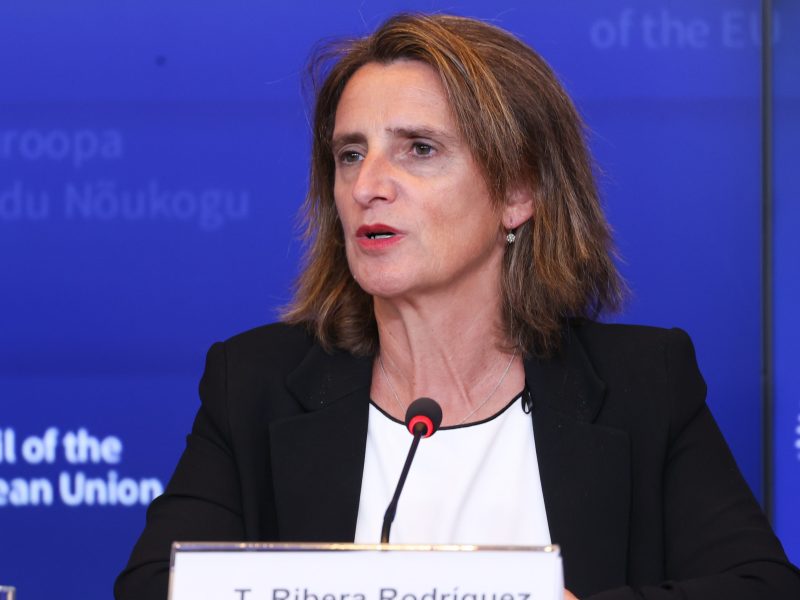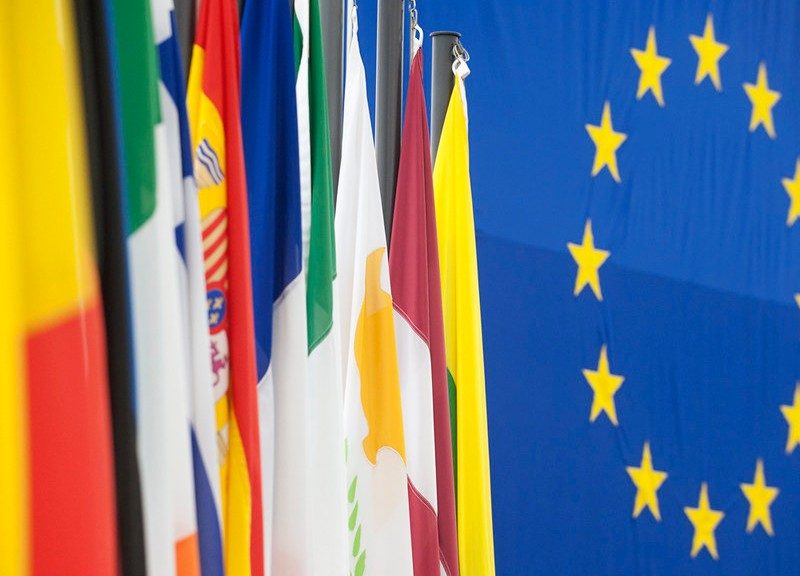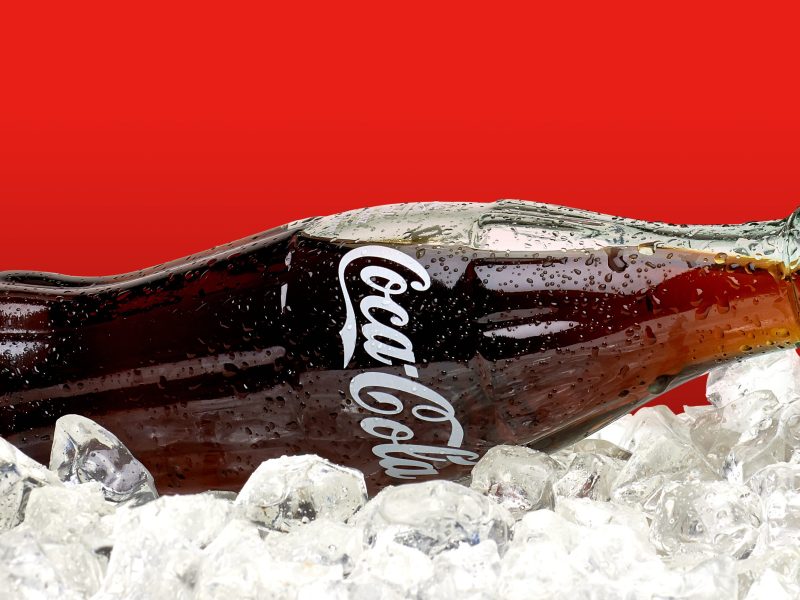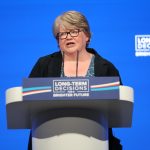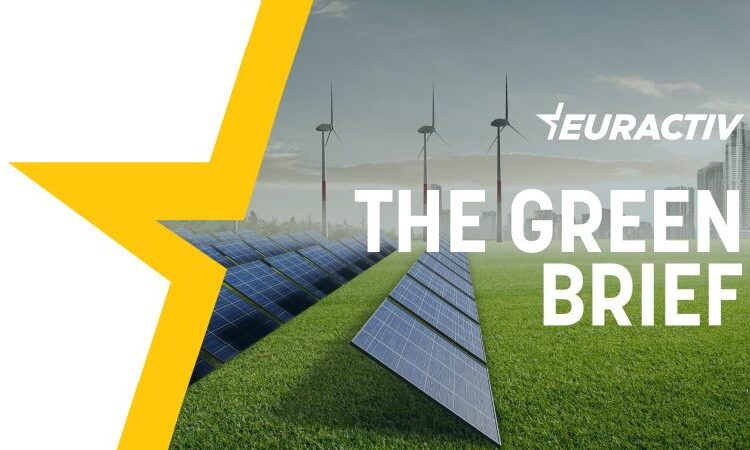
Hello and a big welcome to our new subscribers from BNP Paribas, Wildlife Trusts, the European Commission and more. Euractiv’s Green Brief brings you a roundup of energy and environment news from across Europe. You can subscribe here.
As the world’s second-largest economy and biggest emitter of greenhouse gases, China will come under renewed pressure from Western countries to do more on climate change at the forthcoming COP28 climate summit in Dubai.
At COP28, Europe, the United States and other industrialised nations will attempt to convince Beijing to stop building new coal power plants and make a bigger contribution to climate finance in order to help developing countries shift to clean energy and cope with natural disasters caused by climate change.
Emerging economies like China, Saudia Arabia and South Africa, for their part, are worried they’re going to be more on the hook for taking stronger commitments on greenhouse gas cuts and climate finance than they were previously, said a Western diplomat who requested anonymity in order to talk about sensitive matters with journalists.
China, however, claims it is still a developing country – a line it has been holding on to since the start of UN climate talks in 1995.
As such, Beijing says it should be on the receiving end of international climate assistance rather than on the side of contributors.
“China is a developing country, with a 1.4 billion population facing difficult challenges in terms of economic development, improvement of people’s livelihoods, pollution prevention, and environmental protection,” said Fu Cong, China’s ambassador to the EU.
And despite these difficulties, China has fulfilled its obligations under the UN Convention on Climate Change (UNFCCC), committing to peak emissions before 2030 and reach carbon neutrality before 2060, Fu said at the European climate stocktake organised by the European Commission in Brussels last Friday (27 October).
“Developed countries have better abilities and should live up to their historical responsibilities,” the Chinese ambassador said, referring to the principle of Common But Differentiated Responsibilities (CBDR) that was enshrined at the Rio Earth Summit in 1992.
This means climate actions undertaken by developing countries should be “commensurate with the support they receive”, Fu stressed.
“In this respect, developed economies should respond to the long-standing concerns of developing countries and deliver on their commitment by mobilising 100 billion US dollars every year before COP28,” he insisted.
A new architecture for climate finance
Rich nations, it must be stressed, have not fulfilled their side of the contract.
The US, for instance, should be paying almost $40 billion annually towards the $100 billion Green Climate Fund but only contributed $1 billion in 2023, after a six-year hiatus started under President Trump.
European Union countries, for their part, promised last year that the $100 billion pledge “will be met in 2023”, a promise that has yet to materialise.
Fatih Birol, the head of the International Energy Agency (IEA), told Euractiv he was confident that the long-standing climate finance objective will be met at COP28.
“But this alone is not a reason to be cheerful. We are very late and this is only a fraction of the money that’s needed,” he said in an interview with Euractiv on 11 October.
According to the UN, developing countries will need at least $12 trillion by 2030 to meet their stated climate goals. And with the $100 billion commitment expiring in 2025, a new climate finance architecture must be put in place anyway to deal with the magnitude of the problem.
In those circumstances, Beijing’s contribution to international climate finance is becoming more essential than ever – if only because of China’s economic weight and growing position as a global clean technology powerhouse.
“China, like other countries that have the financial muscle, has a responsibility to develop clean energy at home and complement it with support to the lower-income countries in other parts of the world,” Birol told Euractiv.
While clean energy investments reached $1.8 trillion worldwide this year, up from $1 trillion in 2015, “almost all the increase came from advanced economies and China,” Birol remarked. Meanwhile, in Africa and other lower-income countries, “the growth in clean energy investment was flat,” he pointed out, calling on Beijing to take a more active role.
Another key priority at COP28 will be to convince China and other emerging economies to “stop making the problem worse” and “stop building new unabated coal power plants” – a point that was hammered home by US climate envoy John Kerry in a recent op-ed co-signed with Birol.
“If we allow the continued deployment of new unabated coal, especially in Asia, it is going to negate all of the progress that we are making in the United States and Europe” to decarbonise the economy, explained Geoffrey Pyatt, US Assistant Secretary of State.
“So our goal is to phase out coal as fast as possible,” Pyatt told reporters in Brussels back in October, saying there will be “a lot of US focus on this particular issue” in the lead-up to COP28.
Green protectionism
Surely, bringing China on board with global efforts to stop coal and contribute to international climate finance won’t be easy.
But Beijing can perhaps be convinced if its contribution comes with a simultaneous recognition of its role as a green tech manufacturing hub – and commitments by Europe and the US to keep their economies open to Chinese imports.
“We need to pursue mutual benefits and resist protectionism,” Fu insisted in his speech at the European climate stocktake, calling the EU’s decision to launch an anti-subsidy probe into electric vehicles from China “unjustified and regrettable”.
And worryingly for Beijing, similar anti-subsidy probes are currently being considered on wind turbines and solar PV products, he remarked.
“Attempts to ‘decouple’ or ‘de-risk’ that threaten global supply chains must be rejected so as not to jeopardise global cooperation on climate change,” Fu warned, referring to Europe’s new doctrine on China, which involves ‘de-risking’ the EU’s economy from dependence on Chinese imports.
“Global climate governance does not happen in a vacuum,” the Chinese ambassador reminded, calling on Europe “to enhance political mutual trust” and “stay alert to the politicisation and instrumentalisation of climate issues”.
Fu has a point. With only sticks and no carrots, it would be foolish to expect anything from China at COP28. “Why seek political confrontation on the one hand and expect unconditional cooperation on the other?” the Chinese ambassador wondered in his speech.
At the same, China’s claim that it is still a developing country is becoming increasingly difficult to defend in view of the country’s economic weight and global dominance in clean tech manufacturing, which branched out from solar panels 10 years ago to extend into other sectors like electric vehicles and wind turbines.
“More than a decade of policy support has established China as the largest manufacturer for clean energy technologies and their components globally, and it looks set to maintain – and even extend – this position in the coming years,” the IEA said in a May 2023 report on clean tech manufacturing.
Europe and the US are legitimate in defending their own green industries and seeking to reduce over-reliance on Chinese imports. Yet, any global deal on climate change must also recognise China’s newly-acquired status as a global leader in clean technologies.
A global green new deal – not a green trade war – is what world nations should aspire to in Dubai for COP28 to end up as a success.
– Frédéric Simon
WARSAW. Top private Polish radio station sponsored by state-owned petrol giant. The leading private radio station RMF FM has received money to promote the activities of Orlen S.A., one of Poland’s largest state-owned multinational oil refiners and petrol retailers, casting a shadow on the independence of the country’s media market. Read more.
SOFIA. Bulgarian dispute with Lukoil could turn into regional oil crisis. The rapid withdrawal of the derogation for the import of Russian crude oil for Russian company Lukoil’s Bulgarian refinery has the potential to lead to a crisis in the fuel market in the Balkan region, Bulgarian Prime Minister Nikolai Denkov warned in an exclusive interview for Euractiv Bulgaria. Read more.
SOFIA. Bulgaria starts nuclear project with US technology. The Bulgarian government has started constructing Unit 7 at the Kozloduy Nuclear Power Plant, using US technology that is unique to Europe, and with an initial government investment of €250 million, according to Prime Minister Nikolay Denkov. Read more.
MADRID. Spain collects €3 billion in ‘solidarity taxes’ on banks, large energy companies. Madrid’s solidarity taxes on financial institutions and large energy companies that were implemented last year to mitigate the impact of the post-COVID-19 economic crisis has raised over €2.9 billion, €400 million more than initially planned, Finance Minister María Jesús Montero reported on Wednesday. Read more.
- NOVEMBER
- Mobility package: Communications on common European mobility data space, Revision of package travel, Review of passengers’ rights framework
- Revision of the Combined Transport Directive
- Action plan to facilitate grids roll-out
- 20 NOVEMBER. Packaging and Packaging Waste Regulation voted on in plenary this week
- 20 NOVEMBER. Net Zero Industry Act on in plenary this week
- 21 NOVEMBER. Forest monitoring framework
- 30 NOVEMBER-12 DECEMBER. UN Climate Change Conference (COP 28), Dubai
- DECEMBER
- Protection of animals during transport
- 7 DECEMBER (tbc). Final trilogue on Energy Performance of Buildings Directive (EPBD)
- 14-15 DECEMBER. European Council
- 18 DECEMBER. Environment Council
- 19 DECEMBER. Energy Council
- 2024 – Q1
- Communication on carbon storage technologies
- 2040 Climate target communication
- Communication on water resilience
- Communication on advanced materials for industrial leadership
- 22-25 APRIL: Last European Parliament plenary session before the European elections
- SPRING 2024
- First European Climate Risk Assessment
- 6-9 JUNE: European elections
Edited by Nathalie Weatherald and Frédéric Simon. Interested in more energy and environment news delivered to your inbox? You can subscribe to our daily newsletter and to our comprehensive weekly update here.

